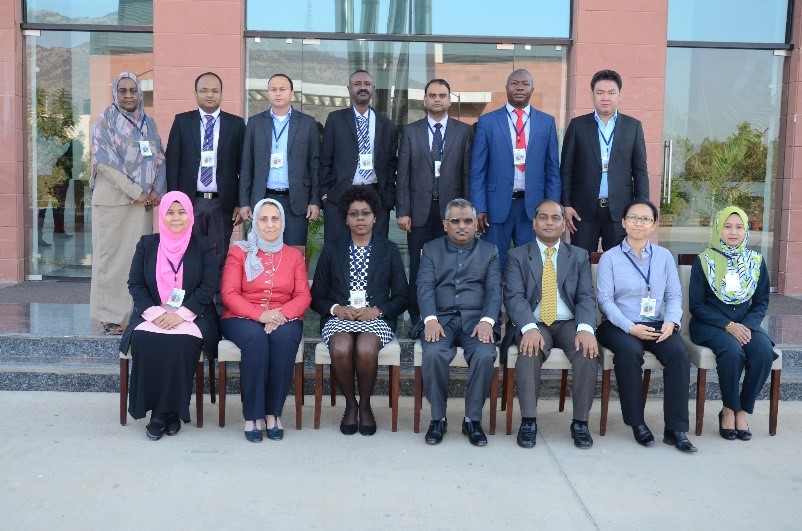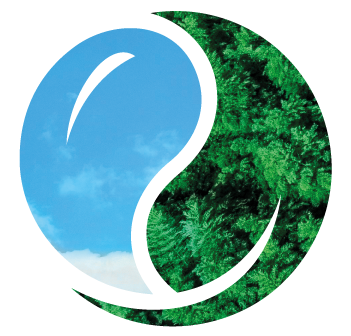International Workshop on Audit of Water Issues
20.03.2018
During the 15th Steering Committee meeting of WGEA, it was decided, that iCED would conduct an International Workshop on Audit of Water Issues for Audit Managers of SAIs. The WGEA has already issued guidelines on “Auditing Water Issues” in 2004 and 2013 and a research project on Marine Environment was taken up in currently concluded work plan 2014-16. The WGEA is also working on couple of research projects viz. Greening cities and Water Sanitation (Waste Water) in Work Plan 2017-19 where water is in the scope of the respective research projects. Hence, based on the further suggestions from the members of the Steering Committee of INTOSAI WGEA, a one week workshop, with an objective to provide a platform, to various SAIs for contributing and sharing their valuable knowledge and experience in the field of “Audit of Water Issues”, was organised at INTOSAI WGEA’s Global Training Facility the International Centre for Environment Audit and Sustainable Development, Jaipur from 19 to 23 February 2018. This International Workshop on “Audit of Water Issues" for Audit Managers of SAIs aimed at interaction on issues relating to water pollution, water scarcity and Resource Management, Drinking water and Sanitation, etc. Workshop was attended by 12 participants from 08 countries across the globe viz. Bhutan, Egypt, India, Lao PDR, Malaysia, Sudan, Thailand, and Zambia.
Eminent experts in the field of water related issues delivered sessions during the workshop but the emphasis of the workshop was more on sharing experience of audit of water issues and discussion on strategic issues. Three themes were identified for experience sharing and discussion:
- Water Pollution
- Water Scarcity and Resource Management
- Drinking water and sanitation
On the opening day of the workshop Mr. Anshuman, Senior Fellow & Associate Director, The Energy and Resources Institute, New Delhi briefed the participants about ‘Trends and Challenges in Water Sector and need for Sustainable Development’. Mr. Anshuman has vast experience of working in the water sector and his expertise in the water sector lies in the areas related to integrated water resource management, water use efficiency, water quality and quantity assessments where he has carried out several comprehensive research studies in context of the source, issues and sectors. Mr. Anshuman described the overall scenario relating to water and highlighted challenges faced by countries across the globe regarding management of water. He also specifically highlighted the water issues faced by the countries of workshop participants. Mr. Anshuman also described the linkage between water related issues and Sustainable Development Goals. He also shared some case studies on successful management and mitigation of water related issues.
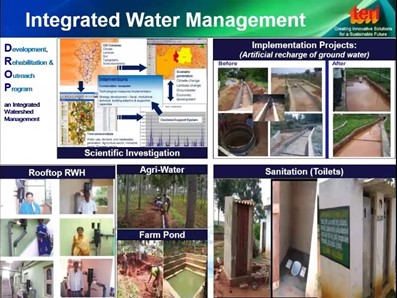
A snapshot of presentation made by Mr. Anshuman
The session was followed by presentation on Integrity and Accountability in Water Sector by Mr. Ravi Narayanan, Chair, Asia Pacific Water Forum (APWoF). Mr. Ravi Narayanan dwelled upon the moral and human aspect of the water issues. Mr. Narayanan explained the uncertainties and complexities of water related issues and elaborated principles and factors important in seeking solution of water issues. Mr. Narayanan engaged the participants, with the help of case studies, in pondering over complexities of water related issues and various approaches to ensure integrity and accountability in water sector.
On day 2 of the workshop, a field visit to Tarun Bharat Sangh (TBS), a non-governmental organization located at Kishori-Bhikampura in Alwar district of Rajasthan so as to illustrate practice of sustainable development through low cost and simple water conservation measures created and managed by local rural community. Dr. Rajendra Singh founder of Tarun Bharat Sangh and winner of “Ramon Magsaysay Award for community leadership in 2001” and “Stockholm Water Prize, also known as the Nobel Prize for water in 2015" briefed the participants about community based water conservation measures undertaken by TBS and their socio-economic impact including improvement of agriculture, economy in rural areas; reversal of out-migration of youth for employment opportunities; improvement in condition of women and women empowerment; etc.
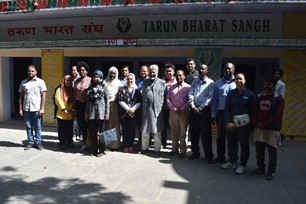
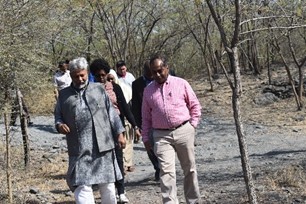
Participants with Dr. Rajendra Singh at TBS Field visit by the participants to TBS
Later on day 2, Mr. Pushkar Kumar, Participant from SAI India, shared the experience of audit of a project of Government of India for rejuvenation of River Ganga. Mr. Pushkar Kumar described the audit methods used in Performance Audit on Rejuvenation of River Ganga.
Day 3 of the workshop was dedicated to the theme ‘Water Pollution’. Mr. Neelesh Kulkarni, Director, PriMove Infrastructure Development Consultants Private Limited, Pune, India gave a presentation on issues related to water pollution. He dwelled upon the causes, sources and impact of water pollution. He described various policy interventions to tackle the problem of water pollution.
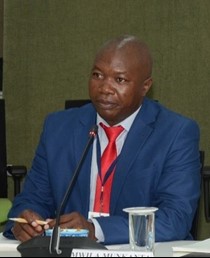 This was followed by experience sharing on audit of water pollution issues by SAIs participating in the workshop. Mr. Pushkar Kumar and Mr. Sanjeev Kumar, participants from SAI India, shared experience regarding ‘Performance Audit of Water Pollution in India during 2010-11’. They explained the objectives, methodologies and criteria adapted during the performance audit. They described the findings of the performance audit and recommendations made by the audit. They also clarified the enquiries made by the other participants. Thereafter, Mr. Smart Nguni, participant from SAI Zambia made a presentation on audit of ‘Management of Environmental Degradation Caused by Mining Activities in Zambia -2014’ with special focus on water pollution caused by mining activities. Mr. Abazar Ahmed and Ms. Siham Eltayeb from SAI Sudan shared experience on Audit of Water Pollution in Nile River. Experience sharing by SAIs on Audit of Water Pollution issues was followed by Discussion on Strategic Issues in Audit of Water Pollution moderated by Ms. Vidhu Sood, Principal Director, Regional Training Institute, Jaipur. Ms. Vidhu Sood described the process and various factors in deciding topics for audit by SAI India. She explained that inputs from various stakeholders is a major factor for selection of a specific topic of audit. Mr. Jahangir Inamdar, Director, iCED initiated discussion on strategic issues during audit of water pollution. The participants had a discussion on various aspects of the issue such as strategic planning for audit of water pollution, concerns of stakeholders, linkages of SDGs with water pollution, various approach of audit, problems faced during audit of water pollution, innovative methods of reporting, etc.
This was followed by experience sharing on audit of water pollution issues by SAIs participating in the workshop. Mr. Pushkar Kumar and Mr. Sanjeev Kumar, participants from SAI India, shared experience regarding ‘Performance Audit of Water Pollution in India during 2010-11’. They explained the objectives, methodologies and criteria adapted during the performance audit. They described the findings of the performance audit and recommendations made by the audit. They also clarified the enquiries made by the other participants. Thereafter, Mr. Smart Nguni, participant from SAI Zambia made a presentation on audit of ‘Management of Environmental Degradation Caused by Mining Activities in Zambia -2014’ with special focus on water pollution caused by mining activities. Mr. Abazar Ahmed and Ms. Siham Eltayeb from SAI Sudan shared experience on Audit of Water Pollution in Nile River. Experience sharing by SAIs on Audit of Water Pollution issues was followed by Discussion on Strategic Issues in Audit of Water Pollution moderated by Ms. Vidhu Sood, Principal Director, Regional Training Institute, Jaipur. Ms. Vidhu Sood described the process and various factors in deciding topics for audit by SAI India. She explained that inputs from various stakeholders is a major factor for selection of a specific topic of audit. Mr. Jahangir Inamdar, Director, iCED initiated discussion on strategic issues during audit of water pollution. The participants had a discussion on various aspects of the issue such as strategic planning for audit of water pollution, concerns of stakeholders, linkages of SDGs with water pollution, various approach of audit, problems faced during audit of water pollution, innovative methods of reporting, etc.
On Day 4 of the workshop, Mr. Ganesh Pangare, Asia – Pacific Regional Director, International Water Association (IWA) and Ms. Sushmita Mandal, Programme Manager, IWA provided the participants an insight into the issue of Water Scarcity and Resource Management. Mr. Ganesh Pangare and Ms. Sushmita Mandal shared their experiences gained by working in various countries for IWA on water issues. Mr. Pangare also elaborated some best practices followed by various countries such as waste water treatment by Singapore, Storm Water Management and Road Tunnel in Kuala Lumpur, Room for the river in Netherlands etc.
During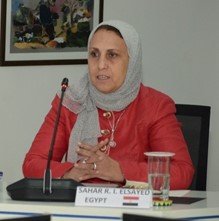 the experience sharing session on Day 4, participant from SAI Egypt Ms. Sahar Rouchdy gave a presentation on Project of coordinated environmental audit on the Nile River- experience of SAI Egypt in the field of compliance control for a company of fertilizers and chemicals. Participants from SAI Zambia Mr. Smart Nguni and Ms. Mwila Munkanta gave a presentation on audit of Provision of Water in Zambia in 2008. They described the audit objectives, methodologies, criteria, audit observations and recommendations. They also dwelled upon probable future strategies in audit of water scarcity and management related issues. Participants from SAI India, Mr. Pushkar Kumar and Mr. Sanjeev Kumar also gave a presentation on ‘Audit of Schemes for Flood Control and Flood Forecasting by SAI India’.
the experience sharing session on Day 4, participant from SAI Egypt Ms. Sahar Rouchdy gave a presentation on Project of coordinated environmental audit on the Nile River- experience of SAI Egypt in the field of compliance control for a company of fertilizers and chemicals. Participants from SAI Zambia Mr. Smart Nguni and Ms. Mwila Munkanta gave a presentation on audit of Provision of Water in Zambia in 2008. They described the audit objectives, methodologies, criteria, audit observations and recommendations. They also dwelled upon probable future strategies in audit of water scarcity and management related issues. Participants from SAI India, Mr. Pushkar Kumar and Mr. Sanjeev Kumar also gave a presentation on ‘Audit of Schemes for Flood Control and Flood Forecasting by SAI India’.
During the last session on Day 4 Mr. Jahangir Inamdar commenced discussion on strategic issues in audit of water scarcity and resource management which was the theme of the day. The participants held discussion on various issues related the theme such as audit planning, potential use of technology, joint and cooperative audits, limitation of data availability, use of data analytics methods, water resource accounting, use of GIS data, etc.
On Day 5 of the workshop, Mr. Joseph Ravi Kumar, Senior Water and Sanitation Specialist, World Bank gave a presentation on ‘Challenges of Integrated Water Management - Spotlight on Treated Wastewater Swap’ under the theme of the day ‘Drinking Water and Sanitation’. He described the problems relating to water faced by countries world over and future challenges in the water sector. He displayed a model on augmenting urban water supply by reducing water losses, waste water recycling and reuse and increasing water supply. He emphasised on considering waste water a resource and demonstrated best practices followed by some industries in India regarding waste water treatment and reuse.
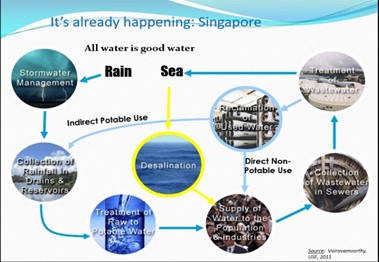
Snapshot of presentation made by Mr. Joseph
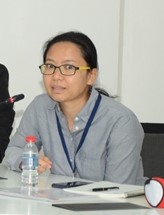 Participants of the workshop also shared audit experience of their respective SAIs regarding ‘Drinking water and sanitation’. Ms. Sineenat Photichai, participant from SAI Thailand, gave a presentation on audit of ‘Ground Water Rejuvenation for School Drinking Water’. She explained the findings of audit and recommendations made by the audit. She also described the ground water scenario in Thailand. Participant from SAI Malaysia, Ms. Hazila Binti Agil gave a presentation on Audit of ‘Water Resources Management by State Government Water Management Authority by SAI Malaysia’. Ms. Hazila described the organisation and functions of Water Audit Division of SAI Malaysia. She shared the experience of some of the audit conducted by the Water Audit Division. Participants from SAI Bhutan and SAI Zambia also shared experiences of audits conducted by their respective SAIs regarding drinking water and sanitation.
Participants of the workshop also shared audit experience of their respective SAIs regarding ‘Drinking water and sanitation’. Ms. Sineenat Photichai, participant from SAI Thailand, gave a presentation on audit of ‘Ground Water Rejuvenation for School Drinking Water’. She explained the findings of audit and recommendations made by the audit. She also described the ground water scenario in Thailand. Participant from SAI Malaysia, Ms. Hazila Binti Agil gave a presentation on Audit of ‘Water Resources Management by State Government Water Management Authority by SAI Malaysia’. Ms. Hazila described the organisation and functions of Water Audit Division of SAI Malaysia. She shared the experience of some of the audit conducted by the Water Audit Division. Participants from SAI Bhutan and SAI Zambia also shared experiences of audits conducted by their respective SAIs regarding drinking water and sanitation.
Later on the Day 5, Mr. Sunil S. Dadhe, Director General had discussion with participants on strategic Issues in Audit of Drinking Water and Sanitation. The participants had discussion on legal framework on water sector, equity in distribution of water, health indicators linked to water quality, behavioural changes in use of water, etc.
During the valedictory session on Day 5, Director General described the background of organising the workshop on water issues. He stated that the thought of this workshop originated in 14th Meeting of INTOSAI WGEA in Cairo. He stated that it was a great learning experience not only for the participants but also for iCED. He mentioned the support extended by the Chair of INTOSAI WGEA, SAI Indonesia and senior management of SAI India for organising this workshop. He requested the participants to further work on the knowledge and insight gained during the workshop and to think about its practical applicability during audit. He thanked all the participants for highly motivating feedback for the workshop. He stated that it showed that the participants learnt a lot from the sessions and workshop has improved their understanding of various issues related to audit of water issues.
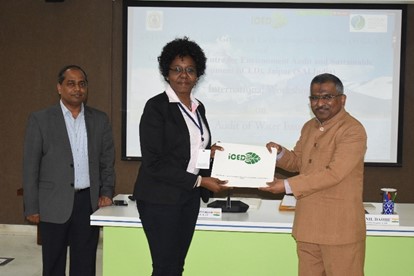
Director General, iCED conferring certificate of participation
The Workshop received very positive feedback from the participants. In the feedback, the participants appreciated the domain knowledge of Sector Experts and also indicated that the experience sharing was helpful for learning from each other. They also suggested inclusion of additional sessions of other water related issues in any future workshop on water issues.
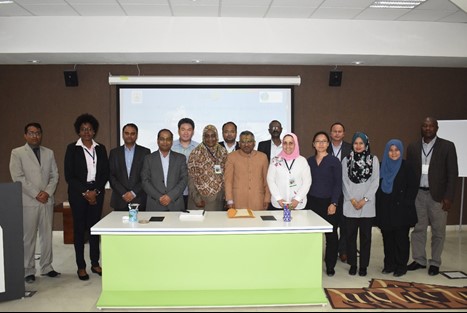
The summary of the International Workshop on Audit of Water Issues can be found here.

